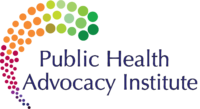PHAI’s Gottlieb Discusses Litigation as an Approach to Reduce Childhood Obesity at Institute of Medicine Workshop
On October 21, 2010, the Institute of Medicine’s Standing Committee on Childhood Obesity Prevention hosted a one-day workshop to examine “Legal Strategies in Childhood Obesity Prevention.” Mark Gottlieb, Executive Director of the Public Health Advocacy Institute at Northeastern University School of Law, presented on a panel moderated by UC Berkeley law professor Stephen Sugarman entitled […]
